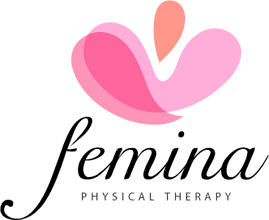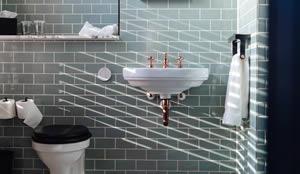Discover the Ways Urinary Incontinence and Weight Are Linked
Today, let's delve into the intricacies of bladder leakage, commonly known as urinary incontinence (UI)
Balancing health and weight involves various factors, both intrinsic and extrinsic, making it a complex aspect of well-being. As a pivotal metric for assessing health, weight is not only a symptom but can also act as a causative factor for various health conditions.
According to the Centers for Disease Control and Prevention (CDC), in 2023, a staggering 41.9% of adults in the U.S. are affected by obesity, accounting for $173 billion in annual healthcare costs. While the implications of being overweight on cardiovascular and mental health are widely known, we explore whether it can also impact pelvic floor health, especially in the context of urinary incontinence.
Research indicates a strong association between being overweight and urinary incontinence. Conversely, UI can impede exercise, particularly if there's a fear of leakage during specific movements. This article takes a closer look at the intersection of factors such as cardiovascular health, metabolic health, and bladder health, focusing on the female experience.
To gauge a person's weight concerning health, Body Mass Index (BMI) is a common metric. However, BMI doesn't consider body composition. A more accurate measurement involves assessing waist circumference and comparing it with hip measurements. The concept of Metabolic Syndrome, a cluster of abnormalities linked to obesity, provides tools to calculate their waist-to-hip ratio.
The American Heart Association suggests that specific waist measurements in women may indicate a higher risk of cardiovascular and metabolic diseases; additionally stating a waist measurement of 33.5 inches in women and 38.25 inches in men has a higher risk of cardiovascular and metabolic disease.
Studies have also shown a link between obesity and urinary incontinence. One hypothesis is that excess weight creates more work for the pelvic floor muscles leading to chronic strain and therefore excess stretch and eventually, weakness. The excess weight is also thought to place increased pressure on the bladder and urethra which leads to bladder muscle (detrusor muscle) instability and overactivity. A 5-point increase in Body Mass Index was associated with a 20-70% increase in urinary incontinence. (Subak et. al).
Another hypothesis in the literature highlights a different correlation between excess weight and pelvic floor dysfunction. It states that adipose (fat) tissue impacts the nerves that feed into the pelvic floor muscles, suggesting a metabolic disorder, like Type 2 diabetes (or pre-diabetes and impaired fasting glucose) and inflammation is what impairs the nerves and blood flow to the bladder and urethral sphincter (the muscle that closes to prevent incontinence, or opens when you need to pee), leading to overactivity and/or incontinence. The suggestion is that the adipose tissue is a result or a symptom of Type 2 Diabetes (Brown et. al).
Nonetheless, there are actionable steps one can take to address improving cardiovascular, metabolic, and bladder health. Including, seeking professional guidance, especially if experiencing urinary frequency, urgency, or incontinence while being overweight. A holistic approach involves consulting primary healthcare professionals to diagnose and treat potential metabolic concerns. They will assess the following to diagnose a Metabolic disorder (Bunn et. al): Glucose intolerance (elevated glucose/Type 2 diabetes), Central obesity (waist to hip ratio >.85 - .9, or BMI ≥30), Dyslipidemia (elevated triglycerides and/or low high-density lipoproteins (HDL cholesterol), and Hypertension (blood pressure ≥130/85 or on medication).
There is a positive impact of weight loss on incontinence episodes, citing a study that shows a 47% improvement with an 8% reduction in body weight (Subak et. al). For those hesitant due to bladder concerns hindering exercise, we recommend starting with a manageable walking routine (with as little as five minutes a day) and emphasizing the role of consistency.
Our highly trained and caring group of pelvic health physical therapists at Femina Physical Therapy can help you on your journey to improve and strengthen these muscles - tailoring an exercise routine specific to your needs. Our therapists also assess your body as a whole and take into account other injuries or pain you may have to integrate into your routine. Connect with us today and initiate this empowering conversation!
References:
Subak LL, Richter HE, Hunskaar S. Obesity and urinary incontinence: epidemiology and clinical research update. J Urol. 2009 Dec;182(6 Suppl):S2-7. doi: 10.1016/j.juro.2009.08.071. PMID: 19846133; PMCID: PMC2866035.
Brown JS, Vittinghoff E, Lin F, Nyberg LM, Kusek JW, Kanaya AM. Prevalence and risk factors for urinary incontinence in women with type 2 diabetes and impaired fasting glucose: findings from the National Health and Nutrition Examination Survey (NHANES) 2001-2002. Diabetes Care. 2006 Jun;29(6):1307-12. doi: 10.2337/dc05-2463. PMID: 16732013; PMCID: PMC1557358.
Bunn, F., Kirby, M., Pinkney, E., Cardozo, L., Chapple, C., Chester, K., Cruz, F., Haab, F., Kelleher, C., Milsom, I., Sievart, K.D., Tubaro, A. and Wagg, A. (2015), Is there a link between overactive bladder and the metabolic syndrome in women? A systematic review of observational studies. Int J Clin Pract, 69: 199-217.
Subak, LL., Wing, R., Smith West, D., Franklin, F., Vittinghoff, E., Creasman, J.M., Richter, H.E., Myers, D., Burgio, K.L.,Gorin, A.A., Macer, J., Kusek, J.W., 2009 Weight Loss to Treat Urinary Incontinence in Overweight and Obese Women N Engl J Med 2009; 360:481-490










